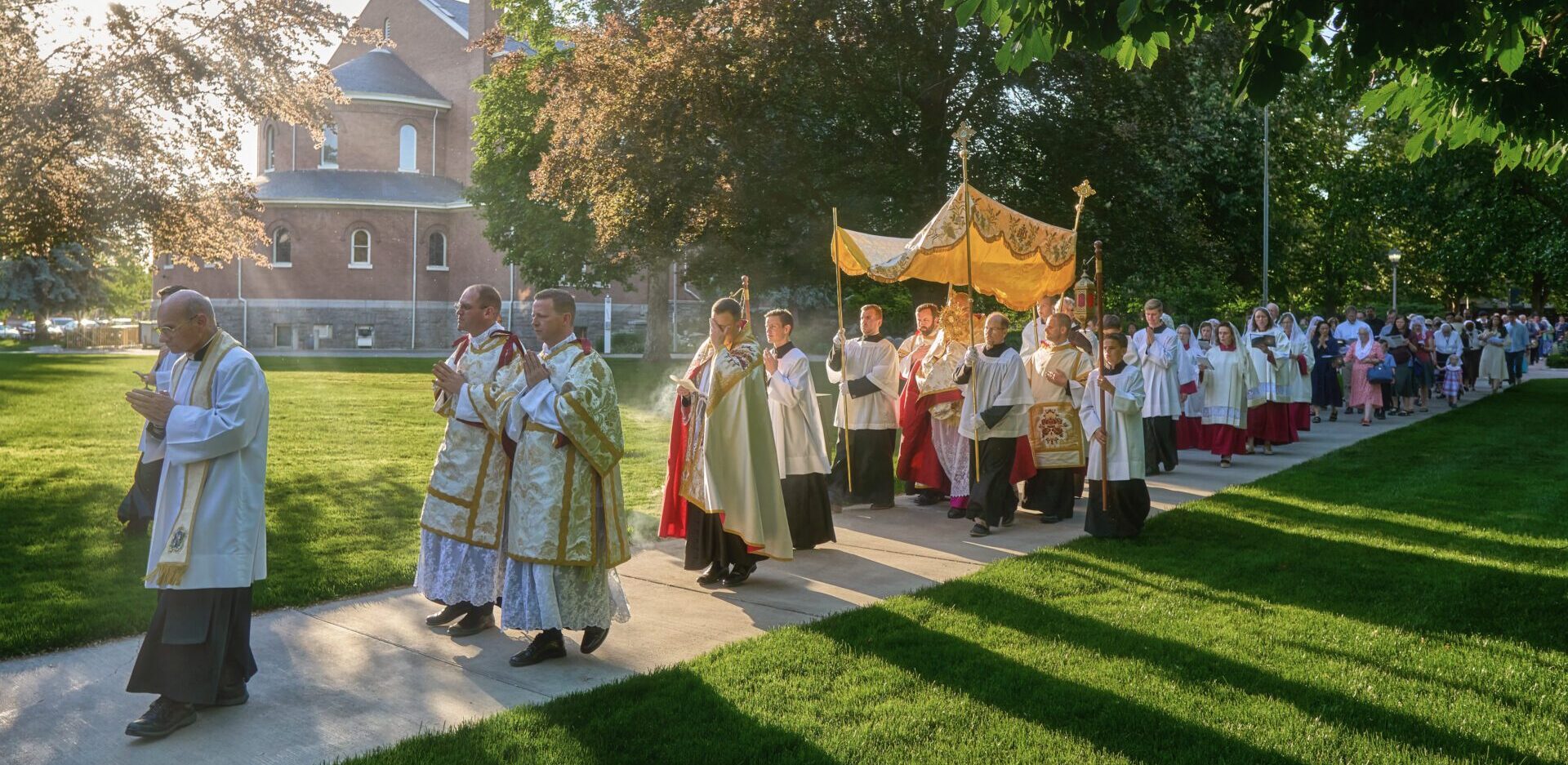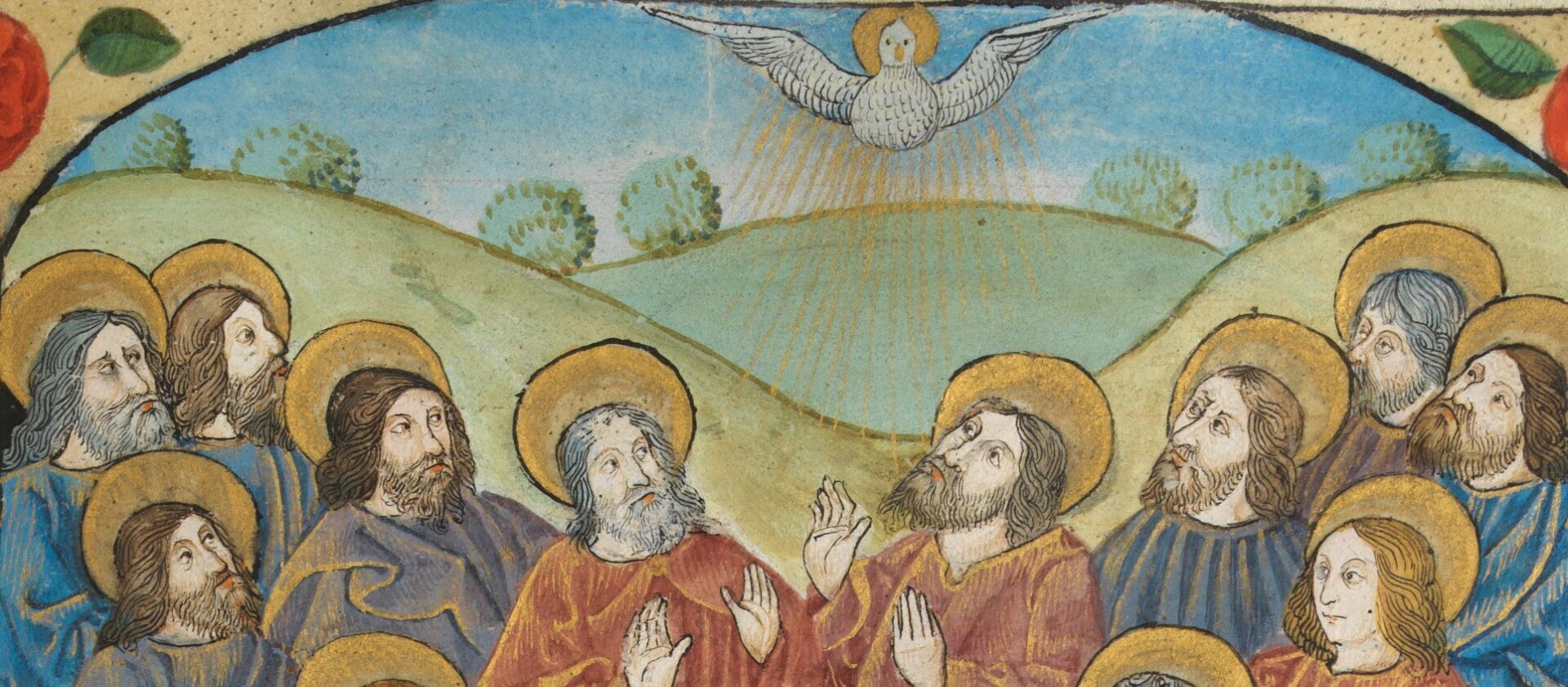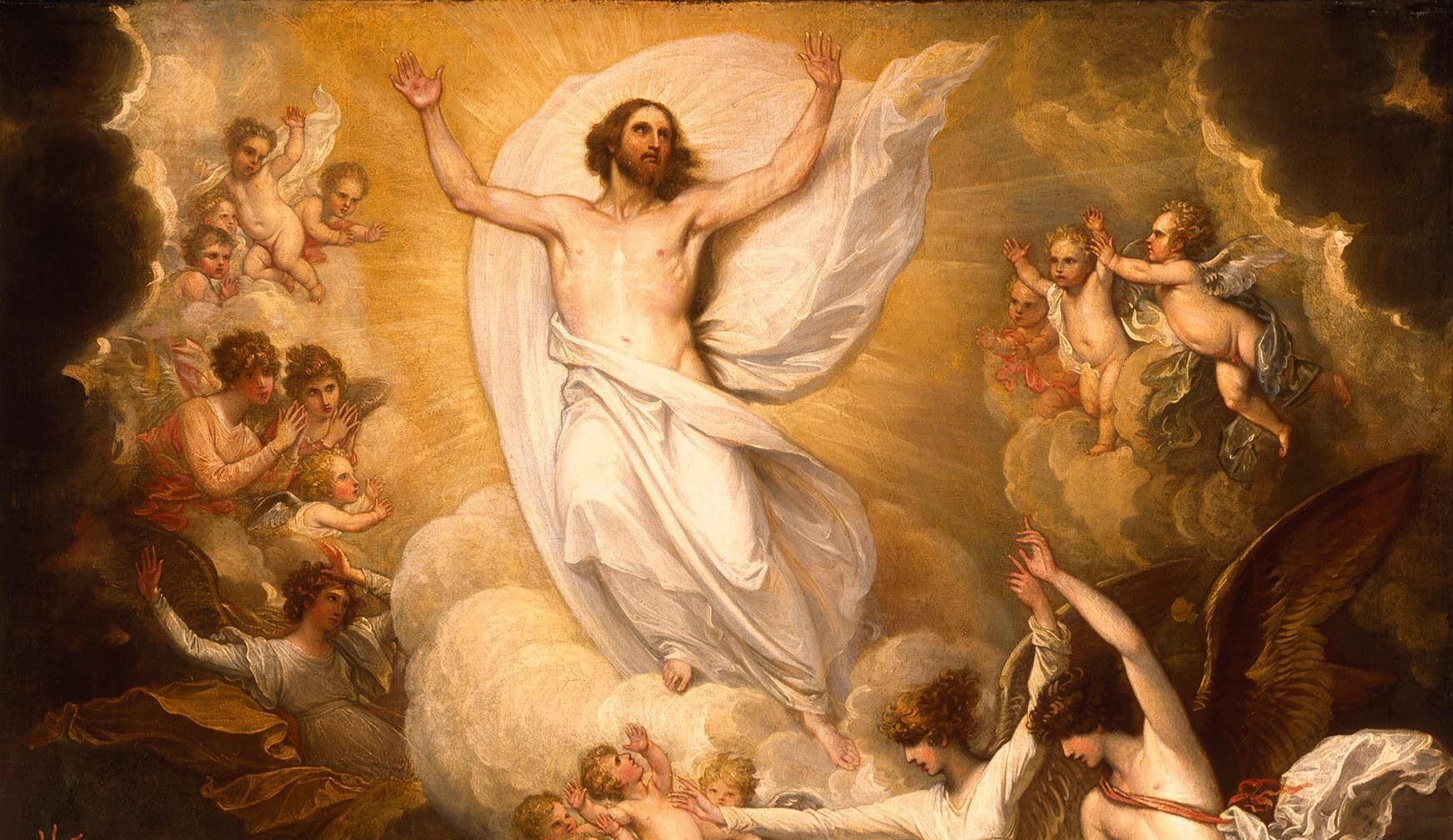As discussed in previous entries, the section of the Roman Missal entitled “Masses and Prayers for Various Needs and Occasions” gathers Mass formularies which pray for the many needs of the Church and of its ranks of the baptized and ordained. Other collects pray for the circumstances of family life and daily work. There are additional sets of Mass prayers which intercede on behalf of various categories of suffering persons, such as the sick. Among those sets of prayers designated for civil needs, a small subset are directed to the twin scourges of war (no. 31) and famine (no. 33), as well as various threats from the natural world, such as earthquakes (no. 34).
Historically, the Church has prayed often and insistently for deliverance from the triple calamities of plague, famine, and war. The Litany of the Saints, in its prior form, specifically prayed for freedom from these repeated threats to the human family: “A peste, fame, et bello, libera nos, Domine.” Since this expression was already part of the Church’s prayer for centuries, it is not surprising that various editions of the Roman Missal contained prayers of intercession asking God to avert these disasters.
The three editions of the Missal of Paul VI have contained a Mass In Time of War. This formulary bears no resemblance to the corresponding Mass In Tempore Belli (no. 21) in the Missal of John XXIII. The same is true for the Mass In Time of Famine (no. 33A and 33B). The current Missal contains no Mass in time of plague, although the Missal of John XXIII contained the historic Mass In Time of Pestilence (no. 23). At the beginning of the world-wide COVID-19 pandemic, the Congregation for Divine Worship and the Discipline of the Sacraments published a Mass formulary In Time of Pandemic (Prot. No. 156/20). This formulary, too, bore no resemblance to the historic prayers in the former Missal. The Congregation intended the texts to be used for the duration of the pandemic. It remains to be seen whether the prayers will eventually find their way into future editions of the Roman Missal to complement the existing collects for protection from war and famine.
Then, there are prayers For Rain (no. 35) and For Fine Weather (no. 36). These might be used in communities experiencing drought in the first case or too much rain or snow in the second. There are also prayers For an End to Storms (no. 37) which might have some use where hurricanes or tornadoes threaten. The prayers In Time of Earthquake (no. 34) will likewise be used only rarely. The prayer For Rain (no. 35) alone is found in the Missal of 1962.
Finally, there are three sets of Mass formularies In Any Need (no. 48A, 48B, 48C). None of the prayers from these Masses find any precedent in the three corresponding Masses in the Missal of 1962, namely, the Masses For Any Necessity (no. 20, no. 28), and In Any Tribulation (no. 21). The first set of prayers (no. 48A) addresses threats to health of mind and body. The second set (no. 48B) makes generic allusions to some event or circumstance of suffering. The third set (no. 48C) appeals for protection from some serious threat to life and limb brought upon by our sinful actions.
This last group of prayers of intercession and protection mentioned above will necessarily have limited use. Nevertheless, they testify to the Church’s desire to intercede for every human condition and need before the throne of grace on high. In communities challenged by natural disasters or random acts of violence, they may provide hope and consolation at time when little makes sense to those experiencing completely unexpected suffering. The attentive celebrant will know how to draw from the storehouse of the old and the new among the prayers of the Church in order to lift minds and hearts to the One who comforts us in all our afflictions.
For previous instalments of Msgr. Caron’s An Occasion to Celebrate series, see:
- Introduction: An Occasion to Celebrate: Discovering the Masses for Various Needs and Occasions and Votive Masses of the Roman Missal
- The Liturgical Calendar’s Role in Masses for Various Needs and Votive Masses
- The Lectionary Readings in Masses for Various Needs and Votive Masses
- Masses for the Church, Council or Synod, and Spiritual and Pastoral Gatherings
- Masses for Clergy and Religious
- Masses for the Mission of the Church in the World
- Masses for the Ordinary Life of the Christian
- Masses for Every Human Need
Msgr. Marc B. Caron, S.T.D., is the vicar general and the moderator of the curia for the Diocese of Portland, ME. He has served as a pastor, as the director of the diocesan Office for Worship, and as a chancellor of the diocese. Most recently, he was a member of the faculty of St. John’s Seminary, Brighton, MA, where he was also director of liturgy. In 2021, he received the doctoral degree from the University of St. Mary of the Lake/Mundelein Seminary, writing on the sacramental nature of the diaconate. He is the author of a number of articles which have appeared in The Jurist, Worship, Catechumenate, and Homiletic and Pastoral Review.
Image Source: AB/IHH Humanitarian Relief Foundation on Flickr



